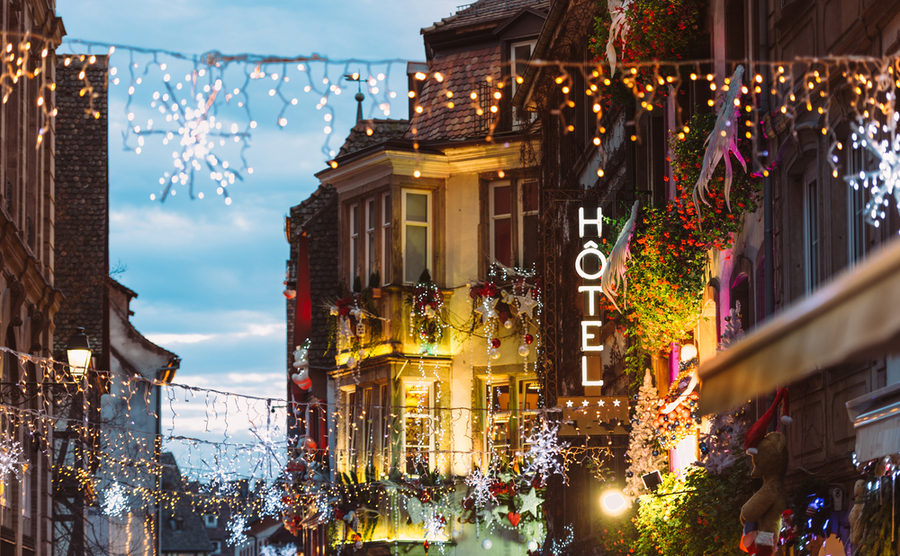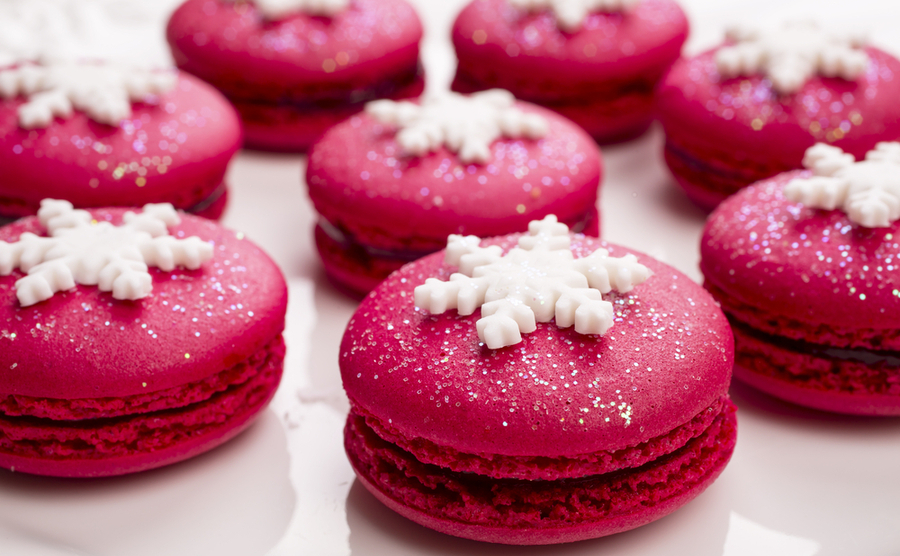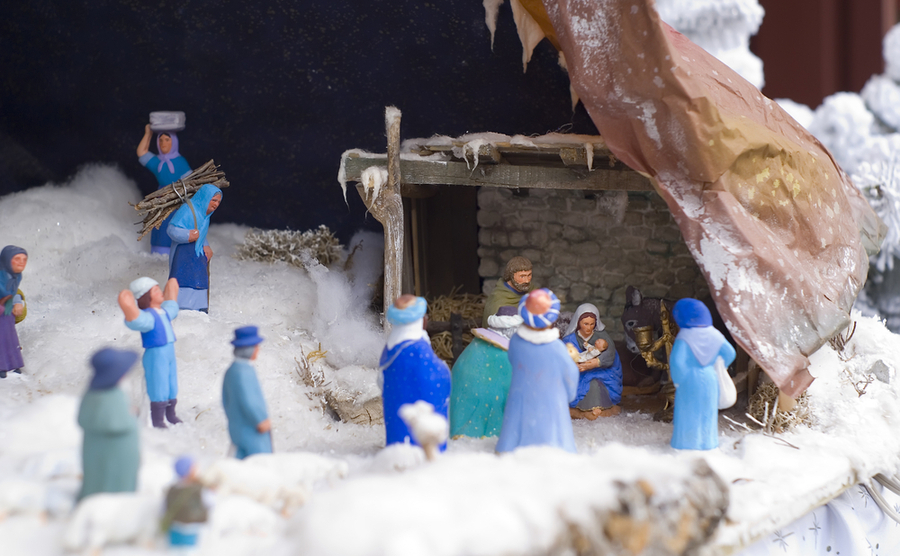Christmas in France is likely to be slightly different this year, but will still be a time of great celebration and gratitude. If this is your first since relocating, get ready to enjoy!
The run-up to Christmas in France has certainly been different this year. The gaping hole where the usual Christmas markets should be and having spent so much of this year in lockdown has certainly made it harder to get into the Christmas spirit. But France has never been one for the massive commercialisation of the season. It’s more about spending time with friends and family and of course, eating and drinking.
This year more than ever, the determination to be grateful, count one’s blessings and to spend time with those you love seems more relevant than ever. And so, celebrate we absolutely shall! The decorations have gone up in towns and villages, and the smaller shops have been allowed to open for business. But really, it’s all about conviviality and being amongst loved ones.
For a smooth move to France, you need to make sure that your budget is protected to reduce risk from exchange rate flux. Find out how in our partner Smart Currency Exchange’s guide, The Property Buyer’s Guide to Currency.

The decorations have gone up in towns and villages.
Food and Drink
The French don’t need any excuse to celebrate food and drink as we all know. So rather unsurprisingly, Christmas in France revolves around it. The main day of celebration is the 24th December as opposed to the 25th. Everything on this day builds up towards the evening meal, “Le Reveillon”, which is normally held late, often after church.
During the day it’s time to catch up with visiting family. If it is not raining or too cold, a walk could be attempted but the conditions will have to be right. The French do not pretend to enjoy the outdoors in the cold or the rain and as we all know, they are unapologetic for the way they are!
The big meal of the day is somewhat subject to regional influence. Tables are set ornately and there will be a copious amount of champagne or “crémant” flowing proceeding it.
If you’re lucky (or unlucky) enough to live in Provence, you may have to tackle the traditional 13 desserts.
You should prepare for this meal! It’s somewhat of an ongoing process and certainly not for the faint hearted. Each course is accompanied by the appropriate wine. Aperos and apero nibbles start the proceedings, often followed by oysters and then foie gras. And that’s simply the starter!
You will not usually find a turkey at a meal during Christmas in France. Some opt for goose, duckling, “capon” or “pintade” accompanied by vegetables. Then we *roll* our way to the cheese course, which can involve eating more cheese in one sitting than across the year in the UK. This is before you get anywhere near the dessert. If you’re lucky (or unlucky) enough to live in Provence, you may have to tackle the traditional 13 desserts (symbolising Christ and the Apostles). You’ll be hoping that one of your gifts is a pair of elastic-waisted trousers for the following days!

If you’re lucky enough to live in Provence, you may have to tackle the traditional 13 desserts.
Crèches – The Nativity
The nativity is all-important to Christmas in France, whether delicately placed in town and village squares or inside people’s homes. France is, of course, still predominantly a Christian country and they retain this tradition, believers or not. Figures depicting all the characters of typical French life are present in this scene.
My personal favourite is “le ravi” (the delighted one) who has an expression of absolute joy at the impending arrival of the baby Jesus. Jesus of course, is never placed in his manger until Christmas Day. As well as the nativity, you will certainly notice the “santons” (little saints) inside people’s homes.
Why not spread the cost and buy with family? Read our guide, Buying with Family.
Traditions
Lights are of particular importance to both the decoration of towns and villages as well as people’s houses. In a clear snub to health and safety, candles are placed everywhere, even outside on window ledges. They signify following the path of enlightenment as well as spreading light to others. Even the smallest of villages will have communal decorations usually organised and set up by the “Mairie”, each in their own inimitable style.
Tablecloths are often knotted at the corners in order to block the uninvited appearance of the devil at the cherished Christmas meal. Without fail, a place is set for either “the unexpected” or a “needy person”. No one will spend this time alone – someone without friends or family will be invited somewhere without fail. The French would simply not have it any other way. This is not the time for anyone to be on their own regardless of personal circumstance.

Figures depicting all the characters of typical French life are present in the nativity scene.
In households, a log is burned (often having been liberally drenched in wine) from Christmas Eve until New Year’s Eve. This is to symbolise luck for the year ahead. And cards are normally sent at New Year to wish luck and prosperity for the year ahead, rather than for Christmas itself.
Following the Christmas meal, it is traditional to leave food and wine on the table for the Virgin Mary (apologies Rudolph!). Children place their shoes by the front door, hoping for presents to appear within.
If you are worried about getting healthcare in France, don’t put your plans on hold – download our guide, Healthcare Abroad. It is free, and right up to date on Brexit.
Business in France
Do not expect any businesses to be open or available at any time over Christmas. They will shut from at least a week prior to Christmas until at least several days after New Year. There is nothing that the French regard as so important that it cannot wait. And certainly, the priority of making money sits well below spending quality time with friends and family during Christmas in France.
And if you manage to get through all of that in a reasonable state, then don’t worry, because New Year is simply a good excuse to repeat the whole process all over again. It is also seen as a time to hope for a brighter year ahead – we are all not only hoping for this but feel like we deserve it!
Bonne Fetes et Joyeux Noel a tous!










